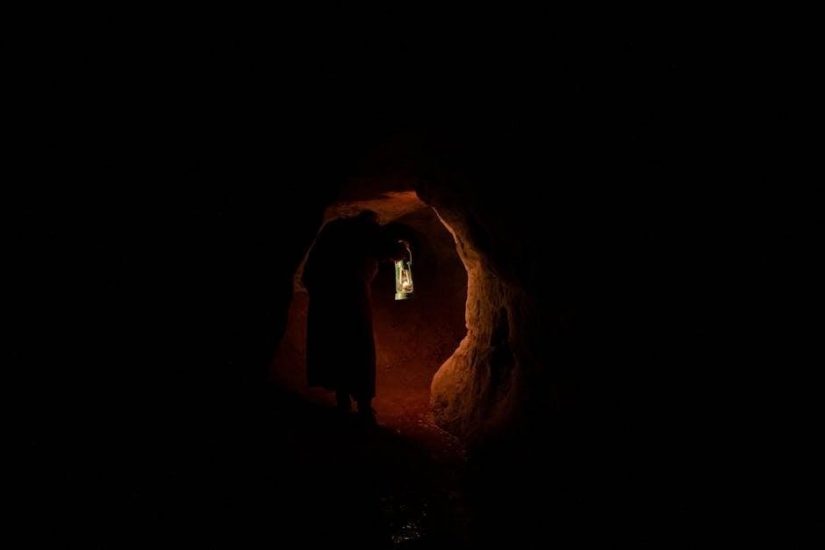Common Indoor Unit Issues
Indoor units often face issues like faulty fans, malfunctioning valves, or clogged drains. These problems can cause reduced airflow, leaks, or improper temperature regulation. Regular maintenance and inspections are essential to prevent such issues and ensure optimal performance.
1.1 Fan Malfunction and Solutions
Fan malfunctions in indoor units can cause reduced airflow and noise. Common issues include dust buildup on fan blades or faulty capacitors. Regular cleaning of the fan and filters can resolve airflow problems. If the fan motor fails, replacing it may be necessary. Always ensure proper power supply and check for blockages in air vents to maintain optimal performance.
1.2 Valve and Sensor Problems
Valve and sensor issues can disrupt system performance. Faulty expansion valves or sensors may cause temperature inaccuracies. Symptoms include reduced cooling or heating efficiency. Professional diagnosis is often required, as these components are critical for system operation. Regular calibration and cleaning can prevent such issues, ensuring consistent and reliable indoor climate control. Always refer to manufacturer guidelines for repairs.
1.3 Drainage Issues and Remedies
Drainage problems are common, often caused by clogged pipes or improper installation. Water leakage or standing water can lead to system shutdowns or mold growth. To resolve, inspect and clean the drainpipe regularly. Use a vacuum or specialized tools to clear blockages. Ensure proper installation and slope to prevent water accumulation. Regular maintenance can prevent these issues and maintain efficient operation.

Outdoor Unit Troubleshooting
Common outdoor unit issues include compressor faults, refrigerant leaks, and wiring problems. Proper diagnostics and timely repairs are crucial to restore functionality and prevent further damage.
2.1 Compressor Faults and Diagnostics
Compressor faults often stem from overloading, low refrigerant levels, or faulty sensors. Diagnostics involve checking the overload sensor, power supply, and refrigerant flow. If the compressor fails to start or runs intermittently, professional inspection is recommended to prevent further damage and ensure efficient operation of the mini-split system.
2.2 Refrigerant Leaks and Repair
Refrigerant leaks are common issues, often due to improper installation or system damage. Symptoms include reduced cooling performance and hissing sounds. To repair, locate the leak using specialized tools, seal it, and recharge the refrigerant. Always contact a certified technician to handle refrigerant-related issues, as improper handling can lead to safety hazards and environmental damage.
Error Codes and Their Meanings
Error codes like 88 indicate wiring issues between indoor and outdoor units. Other codes may signify sensor malfunctions or refrigerant problems. Always refer to the manual for specific code interpretations and solutions to ensure proper troubleshooting and maintenance of your Pioneer mini-split system.
3.1 Understanding the 88 Code
The 88 error code typically signifies a wiring issue between the indoor and outdoor units; This code may appear due to incorrect wire connections, damaged cables, or communication failures. To resolve this, ensure all wires are securely connected and properly color-coded. If the issue persists, contact a certified technician to diagnose and repair the wiring system.
3.2 Other Common Error Codes
Beyond the 88 code, other common errors include E5 (low refrigerant) and 76 (outdoor unit issues). These codes indicate specific problems like refrigerant leaks, sensor malfunctions, or communication failures. Always consult the user manual for code meanings. If issues persist, contact a certified technician to ensure proper diagnosis and repair, preventing further system damage or efficiency loss.

Installation Requirements
Proper installation is crucial for optimal performance. Ensure units are mounted correctly, connections are secure, and manufacturer guidelines are followed to avoid operational issues and ensure efficiency.
4.1 Importance of Proper Installation
Proper installation ensures optimal performance, efficiency, and longevity of your Pioneer mini-split system. Incorrect installation can lead to refrigerant leaks, electrical issues, or poor airflow. Follow manufacturer guidelines to avoid common problems and ensure safety. Improper mounting or wiring can cause system failures, highlighting the need for professional setup. Proper installation is key to reliable operation and troubleshooting effectiveness.
4.2 Manufacturer Guidelines
Adhering to manufacturer guidelines is crucial for proper installation and troubleshooting. These guidelines provide specific instructions for wiring, mounting, and system setup to ensure efficiency and safety. Ignoring these recommendations can lead to system malfunctions or void warranties. Always refer to Pioneer’s official documentation for installation and maintenance to guarantee optimal performance and minimize potential issues.
Refrigerant-Related Problems
Refrigerant leaks or low levels can cause reduced cooling performance and system strain. Always check for leaks and ensure proper refrigerant levels to maintain efficiency and prevent damage.
5.1 Identifying Refrigerant Leaks
Refrigerant leaks can be identified by hissing sounds, reduced cooling performance, or ice buildup on the coils. Inspect the system for visible damage or corrosion, and use leak detection tools to pinpoint the source. Addressing leaks promptly prevents further damage and ensures optimal system efficiency and operation.
5.2 Consequences of Low Refrigerant
Low refrigerant levels can cause reduced cooling, higher energy bills, and increased wear on system components. If left unaddressed, it may lead to compressor failure, requiring costly repairs. Regular checks and prompt refills are crucial to maintain efficiency and prevent long-term damage to the mini-split system.
Thermostat and Temperature Issues
Incorrect thermostat settings or faulty thermostats can disrupt temperature regulation, leading to uneven heating or cooling. Regular calibration and professional checks ensure accurate temperature control and system efficiency.
6.1 Incorrect Thermostat Settings
Incorrect thermostat settings can lead to poor temperature regulation, causing the unit to overwork or underperform. Ensure the thermostat is set correctly for heating or cooling modes. Check for proper calibration and verify that the thermostat is not exposed to direct sunlight or drafts, which can affect accuracy. If issues persist, consider recalibrating or replacing the thermostat.
6.2 Faulty Thermostat Diagnosis
A faulty thermostat can cause inconsistent heating or cooling. Check for wiring issues or sensor malfunctions; Ensure the thermostat is properly calibrated and not exposed to direct sunlight or drafts. If the thermostat fails to respond, it may need recalibration or replacement. Consult the user manual or contact a professional for accurate diagnosis and repair.

Electrical and Wiring Issues
Electrical issues often stem from faulty wiring, tripped breakers, or loose connections. Check the power cord and wiring between units for damage or misconnections. Ensure all electrical components are secure to prevent shutdowns or malfunctions. If issues persist, consult a professional for a thorough inspection and repair.
7.1 Checking the Power Cord
When troubleshooting electrical issues, start by inspecting the power cord for any visible damage, frays, or loose connections. Ensure it is securely plugged into both the unit and the electrical outlet. If the cord is damaged, replace it immediately to avoid further complications. A faulty power cord can prevent the unit from functioning properly, leading to unexpected shutdowns or complete system failure. Always verify the cord’s compatibility with the outlet to ensure safe and efficient operation.
7.2 Wiring Between Units
Ensure the wiring between indoor and outdoor units is securely connected and undamaged; Incorrect or loose connections can cause error codes like the 88 code, indicating wiring issues. Verify that all wires are properly matched by color and function. If damaged, replace them promptly. Improper wiring can lead to system malfunctions, safety hazards, or communication errors between units, requiring professional intervention for reliable operation and optimal performance.

Drainage System Maintenance
Proper water drainage is essential to prevent leaks and system damage. Regularly inspect and clean the drain line to avoid clogs and ensure efficient operation.
8.1 Proper Water Drainage
Proper water drainage is essential for maintaining your Pioneer mini-split system. Ensure the condensate drain line is installed with a slight incline to prevent water accumulation. Regularly inspect and clean the drain to avoid clogs, which can lead to leaks or system damage. Proper drainage ensures efficient operation and prevents mold growth or water damage in your home.
8.2 Clogged Drain Solutions
If your Pioneer mini-split drain is clogged, turn off the unit and disconnect power. Use a wet/dry vacuum or a drain snake to remove blockages. Flush the drain line with water to ensure it’s clear. For severe clogs, mix equal parts water and vinegar to dissolve debris. Regular cleaning prevents future issues and maintains system efficiency and indoor air quality.
Compressor and Overload Issues
Compressor issues often arise from overheating or excessive current. Test the overload sensor to determine if it’s faulty or if the compressor is overloading.

9.1 Testing the Overload Sensor
To test the overload sensor, first turn off the power to the unit. Use a multimeter to check continuity across the sensor. If it shows no continuity, the sensor may be faulty. If continuity is present, the issue could be with the compressor overloading due to high current draw. Consult a professional if unsure.
9.2 Compressor Overloading Causes
Compressor overloading often results from low refrigerant levels, clogged air filters, or malfunctioning fans. High ambient temperatures and improper unit sizing can also strain the compressor. Regular maintenance, such as cleaning filters and ensuring proper refrigerant levels, can prevent overloading and extend the lifespan of the compressor. Addressing these issues promptly is crucial for system efficiency.
Condenser Coil Problems
A clogged condenser coil can cause reduced cooling efficiency and increased energy bills. Regular cleaning is essential to remove dirt and debris, ensuring proper airflow and system performance.
10.1 Signs of a Clogged Coil
Signs of a clogged condenser coil include reduced airflow, increased noise, and higher energy bills. The unit may also produce less cooling or shut off frequently. Regular inspection for dirt buildup and ensuring proper cleaning can help maintain efficiency and prevent premature system failure, ensuring optimal performance and longevity of the mini split system.
10.2 Cleaning and Maintenance
Regular cleaning of the condenser coil is essential for maintaining efficiency. Use a soft-bristled brush to remove dust and debris. Ensure proper airflow by trimming nearby plants. Neglecting maintenance can lead to reduced cooling performance and higher energy bills. For severe blockages, professional servicing may be required to restore optimal function.

When to Call a Professional
Contact a professional if issues like refrigerant leaks, compressor faults, or complex error codes persist. Trained technicians ensure proper repairs and safety, preventing further damage.
11.1 Recognizing Unsolvable Issues
Some problems, such as refrigerant leaks, compressor faults, or complex wiring issues, require professional expertise. If troubleshooting steps fail or you encounter advanced error codes, it’s crucial to recognize when DIY solutions aren’t sufficient and seek help from certified technicians to avoid further damage or safety hazards.
11.2 Contacting Pioneer Service Centers
For unresolved issues, contact Pioneer service centers through their official website or provided contact information. Their certified technicians offer expert diagnostics and repairs, ensuring your system operates efficiently. Reach out for professional assistance to address complex problems and maintain your mini-split’s performance and warranty.

Preventative Maintenance Tips
Regularly clean air filters and condenser coils to ensure efficient operation. Schedule annual professional inspections to identify potential issues early and maintain optimal performance of your mini-split system.
12.1 Regular Maintenance Schedule
A regular maintenance schedule for your Pioneer mini-split includes monthly filter cleaning, quarterly coil inspections, and annual professional check-ups. This routine helps prevent issues like reduced airflow, refrigerant leaks, and compressor faults. Always refer to the manufacturer’s guidelines for specific recommendations tailored to your system’s needs and operational demands.
12.2 Avoiding Common Issues
To avoid common issues, ensure proper installation, maintain clean filters, and inspect wiring regularly. Addressing minor problems early prevents major faults; Keep the condenser coil clean and check for refrigerant leaks annually. Scheduling routine maintenance can significantly extend the lifespan and efficiency of your Pioneer mini-split system.
